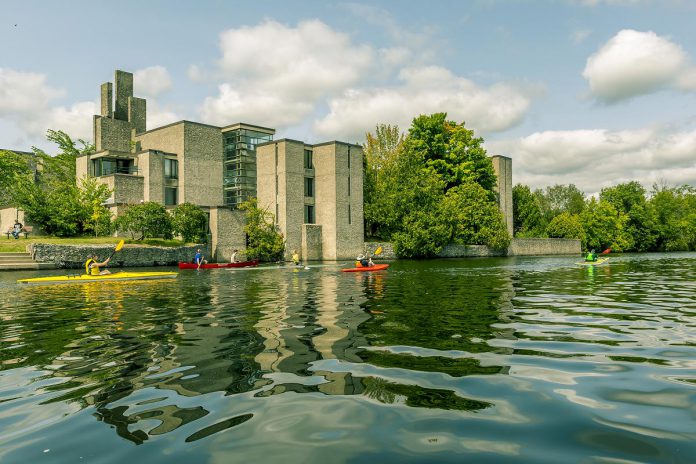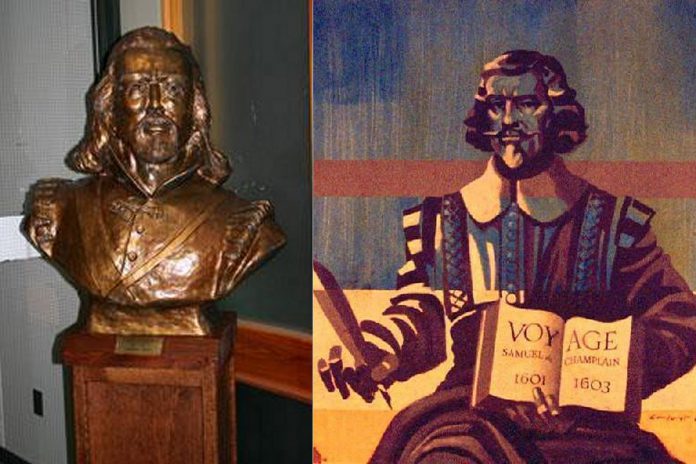Trent University decides how to deal with legacy of French colonist and explorer Samuel de Champlain

Trent University’s Board of Governors has approved recommendations in a report on how the university should deal with Samuel de Champlain’s legacy, including giving an indigenous name from the Anishnaabemowin language to Trent’s next college and place of residence.
Champlain College, the oldest college on Trent University’s Symons campus, is named for the 17th-century French colonist and explorer who founded Quebec City and was the first European to explore and map the Great Lakes. The college also has several pieces of art depicting Champlain.
In November 2021, Trent University President Leo Groarke formed a committee to review and reflect on Samuel de Champlain’s legacy as it relates to Champlain College, the university and its communities.
Advertisement – the story continues below
Questions and concerns have been raised at various times about how the university, which launched North America’s first Indigenous Studies program in 1969, has recognized Samuel de Champlain, viewed by some as a symbol of Canada’s colonial legacy and the oppression of Indigenous peoples. The decision to form the committee came shortly after Canada’s first National Day for Truth and Reconciliation, which the University of Peterborough celebrated with a Treaty Rock installation on the Symons campus.
Chaired by Marilyn Burns, the university’s vice president of communications and enrollment, the Champlain committee was comprised of students, alumni, faculty and staff with a mix of expertise and perspectives spanning Indigenous knowledge and scholarship, ethics, history and heritage.
For nine months, the committee listened to delegations, received nearly 150 written submissions, and hosted an event encouraging students to review studies about Champlain and share their own insights and questions about his legacy.

The result is a 28-page report with eight recommendations, which the university council approved on Friday (October 14).
Recommendations include permanently moving the artwork depicting Champlain from Champlain College to the university archives or library with contextual information and relevant Indigenous artwork, introducing a new “cornerstone” at Champlain College recognizing Indigenous peoples and languages (particularly Anishnaabemowin ) and retaining the Champlain College names, but added cultural context to the name by giving Indigenous names to the college’s buildings and rooms.
The report also recommends giving Trent University’s next college and residence – to be built on Trent University’s Symons campus by 2027 – an indigenous name from the Anishnaabemowin language, in consultation with elders and local First Nations.
Advertisement – the story continues below
Tweet this quote
“In the end, the committee was faced with the knowledge that any conclusion would be unsatisfactory due to the pull of so many passionate views about the meaning of names and symbols,” reads the report’s summary. “She also faced the need to judge a historical figure. We came to an imperfect conclusion, as anyone would under the circumstances: that Samuel de Champlain deserves judgment and scrutiny, but, as some have urged, must not be forgotten.”
“The committee came to a consensus based on a pedagogical environment and perspective: that we have learned more through this process of questioning and that learning is better facilitated by retaining the Champlain name and continuously placing it in the context of the history of nations will then. In particular, the committee heeded the words of Indigenous respondents and leaders who advocated informing history rather than erasing it — and the reality that if we erase it, history is likely to repeat itself and must not allow that to happen.”
“By recommending continuation of the Champlain name with historical context and recommending the Indigenous naming of certain structures and the next college, as determined through extensive contacts with First Nations elders and contract holders, the Champlain Committee believes in truth, reconciliation and an understanding of history is realized at its best – through continuous learning and dialogue.”
PDF: Champlain Committee Report – Fall 2022
Report of the Champlain Committee – Fall 2022
This report is also available on the University of Trent website at www.trentu.ca/champlain-committee.